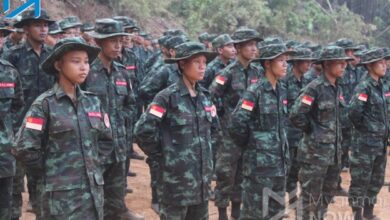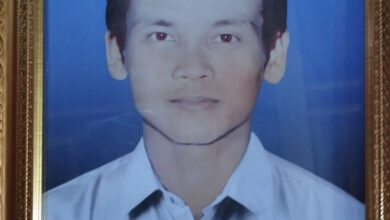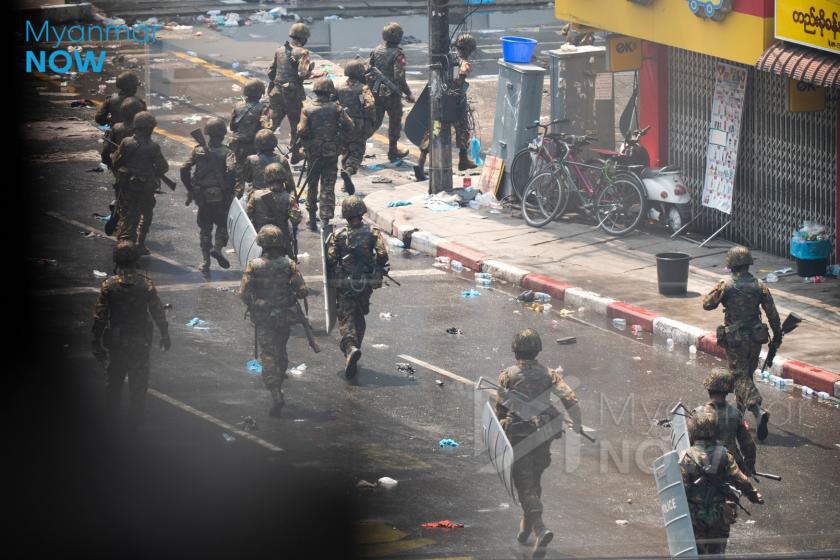
Nearly a week after Myanmar’s chief coup maker met with leaders of the member states of the Association of Southeast Asian Nations (ASEAN) last Saturday to discuss the crisis in the country, reports of abuses by the military continue.
The ASEAN meeting, held in the Indonesian capital Jakarta, reached a five-point consensus that aimed to end the ongoing violence, which has already claimed more than 750 civilian lives in less than three months.
Senior General Min Aung Hlaing, who made his first trip outside of Myanmar since seizing power on February 1 to attend the emergency summit, appears to have backed away from the terms of the agreement since returning to the country.
The day after the meeting, coverage of the summit in state-run newspaper The Mirror made no mention of the five points, which included plans to allow representatives of the regional grouping into the country to observe the situation on the ground.
On Tuesday, however, the regime announced that it would only move forward with this and other points in the agreement once the country had become “stable”.
Meanwhile, it continues its efforts to restore stability through brute force, killing at least seven people during and in the days immediately after the Jakarta summit, in direct violation of its commitment to end violence against civilians.
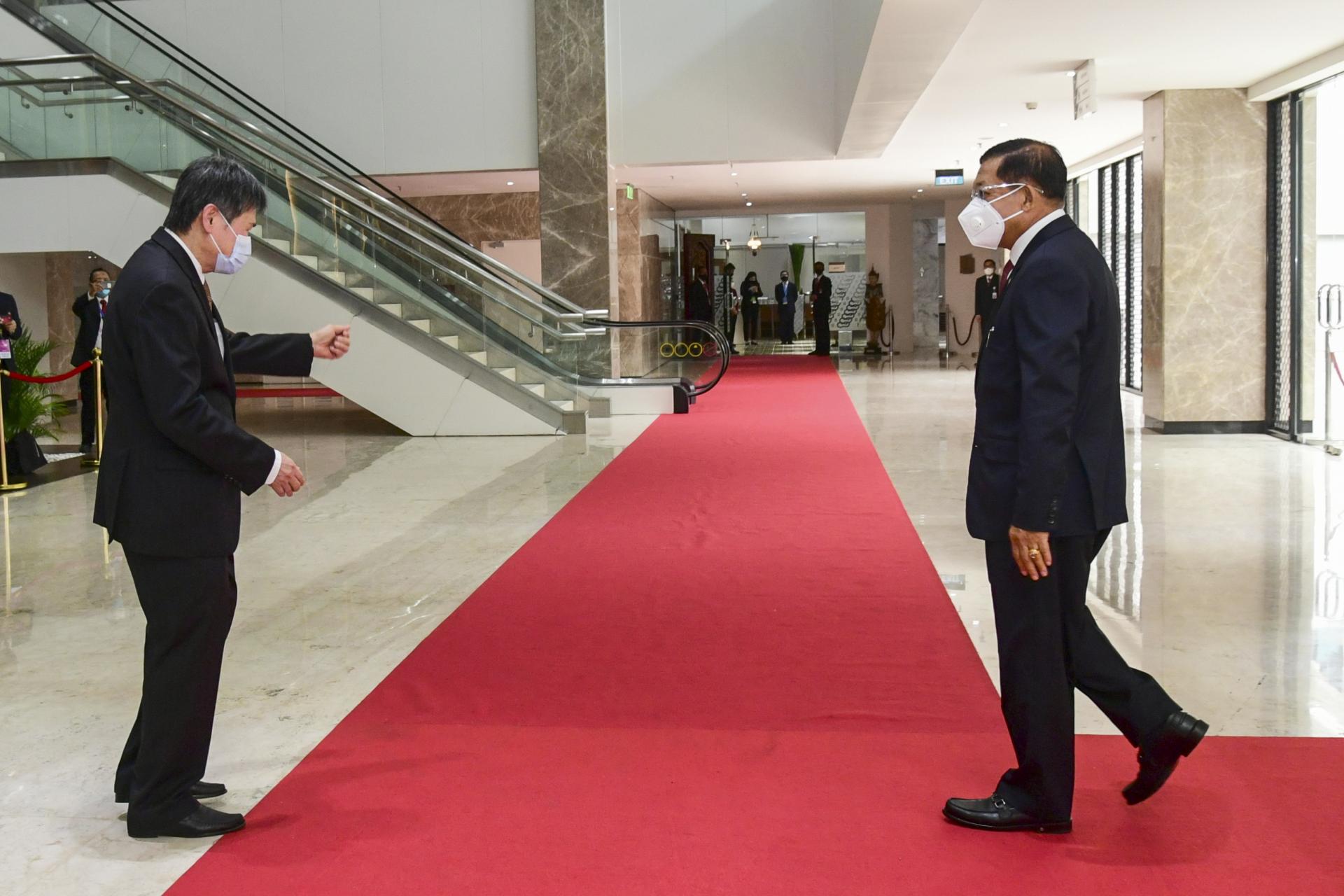
Ongoing abuses
The Assistance Association for Political Prisoners (AAPP), which has documented the regime’s arrests and killings of protesters and other civilians, said that the ASEAN meeting had failed to achieve the desired results.
“On the night after the meeting, the junta’s armed forces continued to commit atrocities against civilians, including women, in plain sight,” it noted in a statement released earlier this week.
On the day of the summit, a young man was shot dead by plainclothes policemen in Mandalay, while a woman arrested in Myaung Mya, a town in Sagaing Region, died shortly after being taken into custody on the same day, according to AAPP.
There was also one other civilian death reported in Yezagyo, Magway Region, on Saturday, followed by two more the next day—one in Kawthaung, in Tanintharyi Region, and another in Yangon’s Insein Township, AAPP records show.
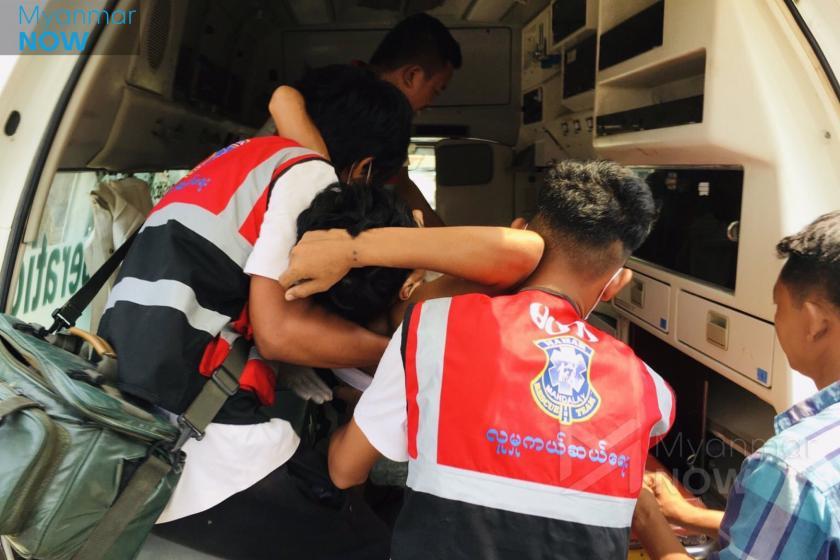
Since then, there have been at least two more fatal shootings of civilians, including one of a fried-rice vendor in Mandalay on Monday and another in Kayah State’s Demoso Township on Tuesday.
In another attack, a woman in Kayin State’s Phaya Thone Su Township sustained serious injuries last Saturday after she was shot by the military and hit with a car while she was taking part in an anti-coup motorbike rally.
Besides using lethal force, soldiers and police have kept up a steady campaign of harassment against civilians in an effort to break their resistance to military rule.
Residents of Yangon report that regime forces come into their neighbourhoods every night after curfew to prevent people from banging pots in protest against the coup.
“They came onto our street last night and started threatening anyone who dared to bang a pot. They used very vulgar language and fired at people’s houses with slingshots. It happens every night now,” said one Yangon resident who asked not to be identified.
On Sunday, a group of women in Yangon’s Mayangone Township were forced to bang their pots and dance in the street while soldiers watched and laughed.
If they stopped dancing, the soldiers hurled insults at them and threw stones at their houses, AAPP said in a statement that recounted a number of similar incidents involving attempts to humiliate civilians.
“Forcing women to hurt their dignity in public, and treating civilians as if they were enemies, are cruel acts that the military continues to lawlessly commit,” the group said in its statement.
In another incident that took place in Yangon’s Mingalar Taung Nyunt Township last Saturday, a transgender woman was forced to wear a man’s longyi and mocked by regime forces.
Many remain undeterred by this behaviour, however, as ordinary citizens continue to register their rejection of the military’s overthrow of the elected civilian government.
A resident of Yangon’s Tamwe Township who complained about the junta’s persistent efforts to disrupt the lives of civilians said that he and most of his neighbours refused to be intimidated.
“They curse at passersby, interrogate them for a while, and then let them go. When they came to my door, I closed it and they threw stones. But we will continue to demonstrate against them. We won’t be ruled by these people,” he told Myanmar Now.
Intensifying pressure
While ordinary citizens do their best to cope with the heavy military presence, those taking part in the Civil Disobedience Movement (CDM) are coming under growing pressure to end their efforts to deny the regime control of the state.
Among those most under threat from the junta are healthcare workers, who spearheaded the CDM in the early days after the coup. In the months since, the movement has been joined by many other public employees and emerged as a major stumbling block to Min Aung Hlaing’s ambitions.
Frustrated by its inability to break the CDM, the junta has in recent weeks stepped up its efforts to arrest the movement’s leaders and put them behind bars on trumped-up charges.
Since April 13, military-controlled television has broadcast the names of at least 20 health professionals who have been charged with incitement and issued with arrest warrants. At least 300 medical workers are now on the regime’s wanted list.
On Tuesday, a failed attempt to apprehend a doctor in Yangon’s South Okkalapa Township resulted in the arrest of her father and younger sister, according to a relative.
The doctor, Yu Sandar Moe, has since gone into hiding, the relative told Myanmar Now.
According to a statement released by the University of Medicine (1) Students Union on Saturday, a total of 46 medical workers and students, including 29 striking doctors, have been arrested since the coup.
The junta has also threatened to revoke doctors’ passports and medical licenses if they join the CDM. Private hospitals and charity clinics that accept CDM doctors will also have their licenses taken away, the junta said.
Other prominent figures in the anti-coup movement have also been targeted for arrest.
On Saturday, regime forces carried out a raid on a monastery in Sagaing Region’s Yinmarbin Township in an attempt to arrest a monk who has led protests in the area.
It was the second time this month that the junta had failed to catch the monk. On April 2, soldiers surrounded the village of Thabyay Aye to arrest him, but locals fought back with homemade rifles.
Four villagers were killed in that clash, which also reportedly resulted in military casualties. At least six people were killed earlier this week during clashes elsewhere in Yinmarbin.
The recent efforts to crack down on protests have also forced tens of thousands of people from 30 villages to flee as soldiers set up camp in the area.
Meanwhile, civilians armed with hunting rifles in southern Chin State’s Mindat Township claim to have killed 30 regime soldiers during four days of fierce clashes that began last Saturday.
Amid concerns that the situation in Myanmar still threatens to spin out of control, Mann Win Khaing Than, the chief union minister of the recently formed National Unity Government, called on ASEAN to ensure that the regime abides by its agreement to deescalate its use of violence.
![Resistance fighters holding heavy weapons ammunition in central Myanmar. (Photo: Freedom Revolution Force [FRF])](https://myanmar-now.org/en/wp-content/uploads/sites/5/2024/04/438869056_443267851680128_1706386881626943924_n-390x220.jpeg)
